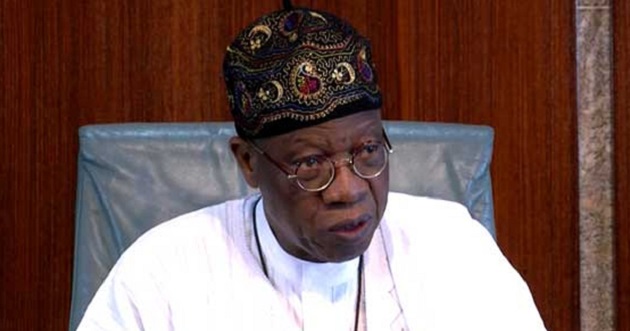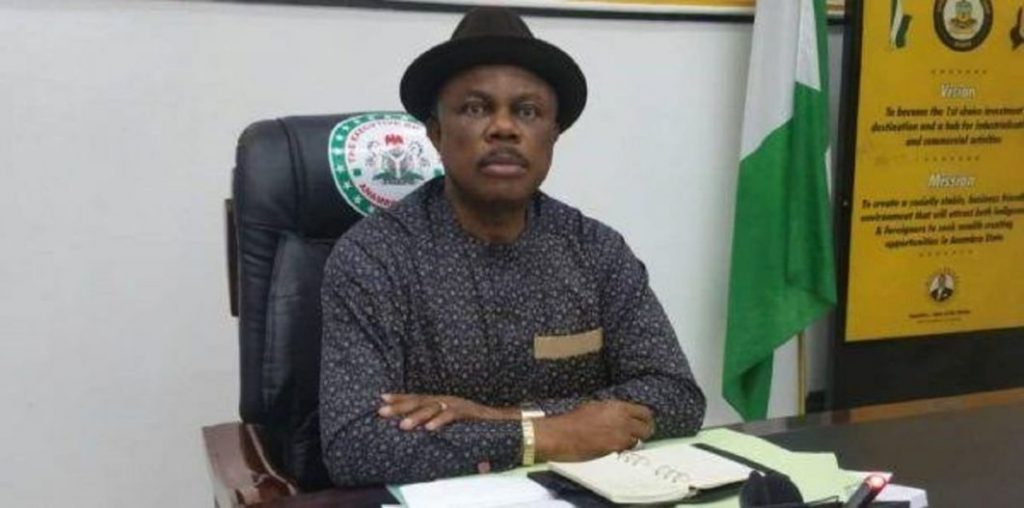The federal government last week hinted at its move to stop subsidising the price of petrol. The news which has kept Nigerians talking, and other events last week, including Information Minister Lai Mohammed’s kick against Lagos State #EndSARS panel report, made our Politics Roundup this week.
We considered the implications of these stories, their impact on the country’s growth and why attention should be paid to them.
1. FG’s petrol subsidy removal plans

On Tuesday, November 23, the Federal Government said it would soon stop subsidising the price of fuel and replace it with a monthly N5000 transport grant to poor Nigerians.
The Minister of Finance, Budget and National Planning, Zainab Ahmed, who disclosed this at the launch of the World Bank Nigeria Development Update (NDU), said the transport grant would target about 30 to 40 million Nigerians who make up the poorest population of the country.
“The subsidies regime in the (oil) sector remains unsustainable and economically disingenuous.
“Ahead of the target date of mid-2022 for the complete elimination of fuel subsidies, we are working with our partners on measures to cushion the potential negative impact of the removal of the subsidies on the most vulnerable at the bottom 40% of the population.
“One of such measures would be to institute a monthly transport subsidy in the form of cash transfer of N5,000 to between 30-40 million deserving Nigerians,” she said.
Implications
Subsidy sincerely has created more dysfunctions in the system and is overdue for removal.
However, for too long, Nigeria’s leaders have ignored basic economic fundamentals that will enable the removal of the subsidy without adverse consequences.
The current uproar against Buhari’s administration’s move to remove the petrol subsidy is an apparent indication that the citizens do not trust the leadership well enough to implement reforms transparently, sincerely and with accountability.
To even conceive of removing the subsidy on petrol without first fixing the country’s refineries shows the Buhari’s administration as being indifferent to the harsh economic realities Nigerians have been subjected to since 2015 when the government assumed power.
2. Lai’s kick against #EndSARS report

The Minister of Information and Culture, Lai Mohammed, on Tuesday, November 23 insisted that the reported killings at Lekki Tollgate were a phantom massacre.
He faulted the report of the Lagos State #EndSARS panel which indicted the Nigerian Army and police in the killing of protesters at the Lekki Tollgate on October 20, 2020.
Mohammed said at a media briefing in Lagos, “There is nothing in the report to make us change our stance that there was no massacre at Lekki on Oct 20.
“For us to change our stance, it means all investigations must be presented to the court and must withstand scrutiny.
“We reject the notion that the Nigerian Army massacred innocent protesters at the Lekki Toll Gate.
“The report was circulated to embarrass the FG; the FG will never condone an abuse on the rights of Nigerians. This is why the FG disbanded SARS and called for investigations across all the states.”
Implications
By rejecting the #EndSARS report, Mohammed and the government he represents may have succeeded in further weakening the trust and faith Nigerians have in the Buhari-led government and the security forces.
Amid the controversies over the quality of work done by the panel, one of the pluses of the report remained that it held the government accountable.
3. Bandits’ designation as terrorists

On Friday, November 26, Justice Taiwo Taiwo, of the Federal High Court sitting in Abuja described the activities of bandits as acts of terrorism.
The judge held, “The activities of Yan Bindiga and Yan Ta’adda groups and other similar groups constitute acts of terrorism that can lead to a breakdown of public order and safety and is a threat to national security and the corporate existence of Nigeria.”
Implications
If the government demonstrates sincerity to the judgment and treat bandits as terrorists as now designated, the insinuations that it had been pampering the criminals will end.
Also, the development will empower security forces to be more brutal against the bandits and possibly create rooms for international coalitions against them.
4. Obiano and EFCC’s watchlist

Media report on Thursday, November 25 said the Economic and Financial Crimes Commission (EFCC) has placed the outgoing governor of Anambra State, Willie Obiano, on a watchlist.
The anti-graft agency was said to have in a letter to the Comptroller General of the Nigeria Immigration Service dated November 15, 2021, requested the service to place the governor on a watchlist and inform it anytime he is travelling out of the country from any of the international airports and other points of entry and exit.
Implications
Except the claim of the governor being witch-hunted by a top government official is true, otherwise, his ordeal can be a demonstration of the government’s determination to fight corruption regardless of persons suspected to be corrupt.
What is, however, questionable is the media trial approach. If in the end EFCC fails to explain to Nigerians why it placed Obiano on a watch list, the anti-graft agency will only end up justifying insinuations in some quarters that it is being controlled and used for political vendetta.
5. Buhari’s suspension of the NNPC board’s inauguration

On Tuesday, November 23, President Muhammadu Buhari announced an indefinite suspension of the inauguration of the newly constituted board of the Nigerian National Petroleum Company (NNPC).
The president, who announced the development through the Secretary to the Government of the Federation, Boss Mustapha, said he had “directed the immediate suspension of the inauguration of the newly constituted Board of the Nigerian National Petroleum Company Limited (NNPC) scheduled for Wednesday 24th November 2021 until further notice.”
Implications
The suspension of the NNPC board’s inauguration showed that Buhari may not have done a proper job ab-initio.
It might also be that he may have seen reasons with those who raise alarms over the appointment of some individuals into the board.
It is possible some nominees may be withdrawn and replaced to calm the agitations against the constitution of the board.